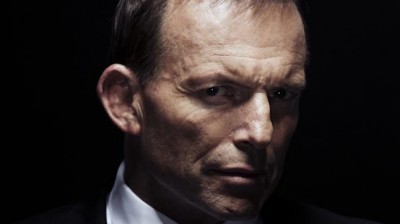Australia’s Syrian Refugee Solution: “Turning Back the Boats”

Distant Australia has done its level best to influence the refugee debate in the most negative of ways this century. Its reactionary response has deployed a range of established stereotypes that have targeted the right to asylum. Safety has been sacrificed in favour of deterrence.
While Prime Minister Tony Abbott continues to bask the ill-gained glory of “turning back the boats”, the European refugee crisis has exploded. This has produced a range of sentiments in Parliament, some verging on the overtly discriminatory. While the refugee category should be inclusive and absolute (such suffering, by its nature, should know no religion or race), the debate suggests quite the opposite: We only want appropriate refugees.
True to form, various Coalition members have expressed interest in select minorities, preferably of the non-Muslim sort. Some backbenchers have been rather open in the party room. “No more Muslim men” is a message doing the rounds.
Front benchers such as Communications Minister Malcolm Turnbull see stars of hope in saving Syria’s Christian communities. “They are a minority, they survived in Syria, they’ve been there for thousands of years, literally since the time of Christ.”Senate Leader Eric Abetz has similarly pushed the line on Christian salvation. “It should be on the basis of need and given the Christians are the most persecuted group in the world, and especially in the Middle East, I think it stands to reason that they would be pretty high up on the priority list for resettlement.”
Foreign Minister Julie Bishop has also had her pick of preferred exceptionally persecuted minority groups. She favours supporting Maronites and various groups within, including the Yazidis and Druze.
The result is an inbuilt method of discrimination that assumes a self-justified, circular logic: if you are a Christian in Syria, then you will be persecuted; if you are persecuted in Syria, then obviously, you must be a Christian. This logic is shoddy on various levels, not least because it ignores numerous other communities, notably Islamic ones, that are equally the targets of terror.While he can’t generally be guaranteed to make sensible remarks on refugees, Opposition Leader Bill Shorten made the obvious point that, “Being a victim of war doesn’t know a particular religion.” He was careful, however, to only propose an increased intake after getting word back from his focus groups.Refugee Council chief executive Paul Power sees such a prioritisation as counter productive. By granting specific refugee groups a talismanic worth – the worthier sufferers, if you will – they will become even more exceptional targets. “I’m sure one of the consequences is that extremists within Syria and other parts of the Middle East will use this as a weapon against Syrian Christians.”[1]
The latest Australian position on refugees is fundamentally consistent with its broader discriminatory practices. It supposedly detests people smuggling, yet consents to paying boat captains to take back refugees when needed. (One claims he was recently paid as much as $30,000 to turn his boat load of human cargo back.)
The Abbott government feels it needs to act, but it is only doing so with reluctance. There are calls from across the political aisle for larger intakes of refugees – Labor has pressed for 10,000, while the Greens have asked for double that number. Liberal backbenchers spoke over the weekend about the death of three-year old Aylan Kurdi. More, it was suggested, needed to be done.
In the main, the government is far busier bungling with such visa-checking missions such as the failed Operation Fortitude, and running detention camps on Manus Island and Nauru that give purgatory a bad name. Detainees face sexual abuse, psychological trauma and an appalling safety record.
The concern here is whether the Australian recipe for dealing with refugees may prove palatable for European policy makers. Abbott has himself suggested on a few occasions that “countries facing a crisis on their doorsteps are looking at his success at stopping the boats and thinking they can learn from Australia’s experience.”[2]
The New York Times, in a scathing survey of Australia’s refugee policies, was worried by exactly that point. “Some European officials,” claimed the editorial board, “may be tempted to adopt the hard-approach Australia has used to stem a similar tide of migrants. That would be unconscionable.”[3]
It would be, but the issue of dealing with refugees ceased being a matter of conscience in Australian politics years ago. More typical are the views of the current immigration minister, Peter Dutton, who parrots the line that such a ruthless stance is actually humane. “Our policies are lawful. They are safe. And they work.”
The grief for the drowned provides the perfect alibi to repress and deter refugees – they are being treated that way for their own good. “What Australians and the world did not see were the hundreds of others who were dying while trying to reach Australia in unseaworthy boats.”[4]
Various European governments have certainly shown Abbott-like tendencies in embracing domestic unilateralism, be it Hungary’s wall solution or the Slovak response of only wanting Christian refugees. That way lies, not merely a good deal of madness, but a good deal of deflection.
Dr. Binoy Kampmark was a Commonwealth Scholar at Selwyn College, Cambridge. He lectures at RMIT University, Melbourne. Email: [email protected]
Notes
[1] http://www.abc.net.au/news/2015-09-08/christians-to-get-priority-in-syrian-refugee-intake/6757110
[3] http://www.nytimes.com/2015/09/03/opinion/australias-brutal-treatment-of-migrants.html?_r=0

